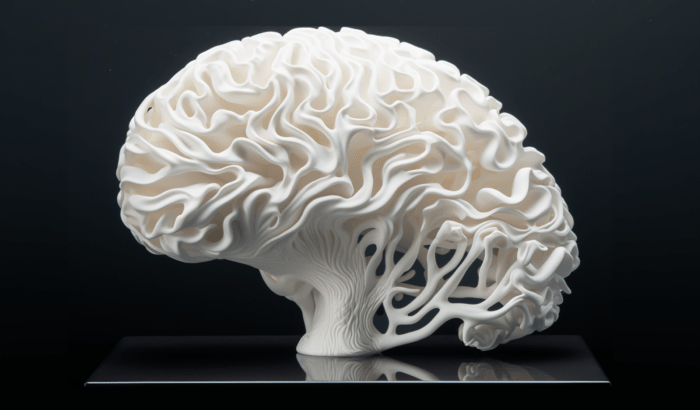What is Grave’s disease? More than just a postpartum problem
Graves’ is a mind-body disease
We tell new mothers to cherish those first precious months. To try to find joy in the small things, the sleepless nights. But what if after pregnancy, new mothers have to take on much more than a new baby, but new health issues, too?
Graves’ disease is just one example of how connected our physical and mental health is, especially after something so monumental as birth.
The autoimmune disorder, which affects the thyroid gland, doesn’t only get in the way of physical processes like metabolism, energy levels, heart rate. But patients often experience an array of symptoms that blur the lines between the physical and psychological – including anxiety, depression and cognitive difficulties.
Sarah’s story with undiagnosed Graves’ disease
Sarah recounts giving birth in 2022 to her first child.1 It was a traumatic birth. After an emergency C-section, she began to experience symptoms like severe anxiety, dizziness and drastic weight loss in her day-to-day life.
She thought it was normal at first. Bad mental health made sense, after a highly challenging partum and the stress and sleeplessness of new motherhood. So, Sarah was hesitant to visit the GP for over a year hoping the problem would settle down. She had no idea that something physical was going on, or that Graves’ disease was the most common cause of hyperthyroidism in pregnancy.2
After finally visiting the GP, Sarah was eventually told she had hyperthyroidism and an unusually high heart rate. She was shocked to find out she had a disease without a cure. It was a feeling of being completely taken aback and unprepared, with so little awareness out there.
Experiencing high blood pressure levels, Sarah was told she had limited options to control her disease. She was even encouraged to think about removing her thyroid completely. Another difficult decision she had to face due to a late diagnosis. After this time of chaos and unexpected moments, Sarah decided to take things into her own hands, and get the word out there about Graves’ disease.
All new mums must know now
The postpartum period is a time of increased risk for the onset or exacerbation of autoimmune thyroid diseases, such as Graves’ disease.3
Sarah’s experience is just one example of the complex interplay between postpartum mental health and physical conditions.
The postpartum period is often accepted as a whirlwind of emotions, sleepless nights, and physical hardship. It means that new and alarming symptoms can often be seen as normal ‘baby blues’ and go unnoticed. But often it’s not just mental health, and the right diagnosis can be life changing.
“My son Austin has been my light, and he has given me purpose, for him I will continue to fight for the right treatment, advocate for myself and share my story with others so we don’t feel alone with our diagnosis”
– Sarah
Hyperthyroidism affects 1 in 500 pregnancies, a common problem.4 Thanks to people like Sarah sharing their stories, we can start to bring awareness to Graves’ disease and many more health issues around pregnancy.
But the root of the problem lies in misdiagnosis. The overlapping similarities between conditions like anxiety, depression and hyperthyroidism can make getting a timely diagnosis difficult.5 Women and new mothers sorely need a more thorough diagnostic approach when they are seeking care from their GP, especially when their mental health disorder seems irregular, persistent or untreatable.7
Without a medical evaluation that considers both mental and physical health after birth, so many are still left in the dark with their hyperthyroidism.
If you want to learn more, our blog about Ren Gill’s struggle with Lyme disease is a shocking story that explores mental health and misdiagnosis in detail. It’s clear we must stop seeing physical and mental as separate in our care settings.
Reference list:
- https://www.btf-thyroid.org/sarahs-story-graves-disease-and-hyperthyroidism
- https://www.stanfordchildrens.org/en/topic/default?id=graves-disease-in-pregnancy-90-P02460
- https://pmc.ncbi.nlm.nih.gov/articles/PMC6914725/
- https://wisdom.nhs.wales/health-board-guidelines/swansea-bay-maternity-file/thyroid-disorders-in-pregnancy/
- https://pmc.ncbi.nlm.nih.gov/articles/PMC10517880/#:~:text=Conclusions,that%20no%20competing%20interests%20exist.
- https://pmc.ncbi.nlm.nih.gov/articles/PMC10517880/
- https://pmc.ncbi.nlm.nih.gov/articles/PMC10517880/






